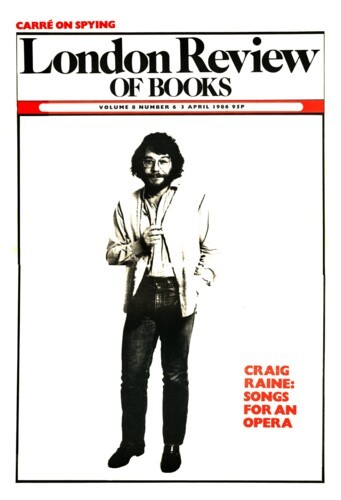Molehunt
Christopher Andrew, 22 January 1987
The vast Soviet-bloc intelligence operation in the West is commonly supposed to consist mainly of running illegals, moles and other agents. In fact, the KGB probably spends more of its time reading the newspapers. Much of the intelligence which can be obtained only by covert means in the East is freely available through open sources in the West. A KGB officer in Washington might begin an average day by reading articles on defence and defence contractors in the Washington Post, New York Times and Wall Street Journal, then move on to more detailed scrutiny of Aviation Week and Space Technology, technical magazines and trade publications. By lunchtime the information he has acquired would be sufficient to provoke an espionage trial if gathered in the Soviet Union, where even the telephone directories are classified.


